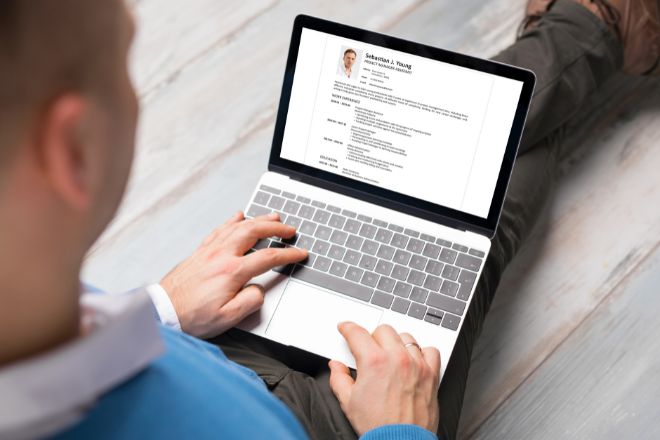The only guide you need to writing a career change resume

Exploring a career change? Taking the leap and moving into a new industry can be difficult if you’re not sure where to start. Whether you are switching industries or returning to work after a break, these tips for creating a top career change resume and cover letter can help you get a head start in a new job.
How to write a good objective for a career change resume?
An objective on a resume is how candidates highlight their career goals in a succinct manner. When you are switching jobs, you will need to ensure that your objective is clear and persuasive to a hirer that you’re the best candidate for the role. Here are a few things to consider:
1. Stay assertive
When switching industries, there's a chance you will feel some imposter syndrome. You may think you’re not good enough for a job. Sometimes, this feeling trickles into your writing. It’s important that when writing your objective, you use assertive language to appear confident in your abilities. This means, removing long ‘waffly’ sentences, making bold statements such as “I am experienced in”, rather than, “I believe I am experienced in”, and not being afraid to show off. For example, highlighting your achievements.
2. Have a clear goal in mind
Your resume objective is there to pinpoint your career goals. An objective should only be about a paragraph long, which means you need to know how to communicate what you are looking for in a future career succinctly. You can do this by creating a mind map or list of an array of work activities you enjoy or career paths that interest you. If you decide you’re more creative than data oriented - you can highlight that you thrive doing creative tasks in your objective.
3. Highlight transferable skills
When creating a career change resume, it may feel like you have a bigger challenge than others as you are applying with minimal experience. But if you’ve spent any amount of time in the workplace or studying, you’ve likely picked up a smorgasbord of transferable skills. Accentuating these skills as well as demonstrating how they can help you in a new industry can create a strong resume objective.
4. Consider the job description
If you’re struggling to find keywords that sell your experience, look no further than the position descriptions of the jobs you’re applying for. Many of these descriptions will include a list of skills or tasks required for the job - have a read through these and if there’s anything in there that you’ve done before or are skilled in, add it to your objective. Not only does this fast track your resume writing process, but it can also help make you a more desirable candidate.
5. Point out any relevant training
When changing careers, it’s common for people to upskill by completing a short course. It is always worth adding any relevant training in your objective as it highlights to your employers that you are committed to the job and willing to learn.
What is the best way to word a career change cover letter?
A cover letter gives you the opportunity to personalise your experience and skills to the job on offer. It can be hard to craft up a cover letter when changing jobs - you may worry about not having the right skillset. Below are some tips on how to best word your career change cover letter:
1. Give examples
Rather than list out all the skills and tasks you completed in your previous roles, give solid examples. It will be a more interesting read for your hirer, make you more memorable in comparison to the other candidates and highlight your specific strengths.
2. Get straight to the point
While it’s great to give examples, you need to stay succinct. Make sure you only include the most important information in your cover letter - when giving examples, you don’t need to give too much background, just summarise in a sentence or two the amazing ‘thing’ you did.
3. Tailor the letter to the job
It’s really obvious when your cover letter is generic and not tailored to a job. Many job advertisements require you to write a cover letter addressing their requirements. Ignoring this makes it look like you don’t care or haven't read the job description properly.
How to add transferable skills to a career change resume?
Transferable skills are vital to highlight in a career change resume because they demonstrate that you can thrive in many job environments. Here are some tips on how to add transferable skills to a resume:
- Analyse job descriptions and discover keywords.
- Consider your personality traits and see how they align to certain skills (e.g. if you are social, you may succeed in a collaborative environment).
- List any skills gained from training such as short courses or seminars.
- Highlight how you’ve utilised your skills in a variety of job settings.
- List any achievements made during your career and any skills used or developed.
Want to strengthen your career change resume? At Upskilled, we offer a range of courses that can help you switch industries with ease. Check out what’s on offer today.




)
)

